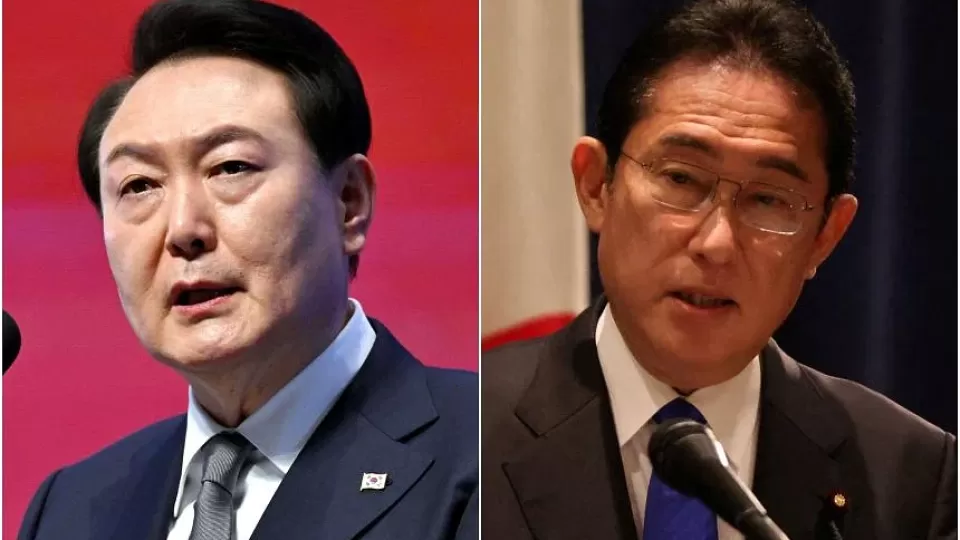March 10, 2023
SEOUL – On Monday, the South Korean government announced solutions regarding the issue of forced labor, one of the sources of diplomatic friction between South Korea and Japan. If Korea-Japan relations improve, Seoul can expect to have a positive impact on responding to the North Korean nuclear threat and expanding diplomatic space toward a global theater. However, whether the situation will unfold as the Yoon Suk Yeol government wishes is unclear. This is because the Yoon administration announced solutions in the middle of the negotiations, which were virtually unilateral concessions, triggering a political burden to respond to complaints and doubts from the people of Korea. Foreign policy, like domestic policies, loses momentum if public support is lacking. It might be necessary to check the Yoon government’s approach and seek alternatives.
The biggest concern in this negotiation process was the speed. If the pace is too fast, Korean people cannot support it as they are not ready. Conversely, the diplomatic momentum will disappear if the speed is too slow. President Yoon Suk Yeol chose to go fast. Unfortunately, Korea-Japan relations have steadily deteriorated over the past decade since former President Lee Myung-bak visited Dokdo in August 2012. Therefore, improving both nations’ ties has become an issue that cannot be dealt with at a rapid pace.
In December 2015, Korea and Japan agreed to resolve the Japanese Military Sexual Slavery issue, but public backlash virtually nullified the deal. This case is like that story. For Yoon’s administration to improve relations with Japan, it is essential to slow the pace of negotiations or consultation so that people can feel that it is driving at regular speed.
Regarding content, the negotiation settlement or concessions level should be a critical evaluation criterion. There were two contending issues in these negotiations. The first point is whether the Japanese war criminal companies participate in raising funds for victims of forced labor. The second point is whether the Japanese government acknowledges the fact of it and shows an attitude of remorse. However, the Japanese side refused to move on to both issues. On the other hand, Korea adopted a “third-party reimbursement” plan in which the other organization provides compensation. According to the method, the Foundation for Victims of Forced Mobilization by Imperial Japan, established by the Korean government, will raise a fund of 4 billion won ($3.04 million) and provide it to victims. The problem is that the two Japanese companies do not participate in the fund. They miserably failed the Yoon administration’s expectations for participating in the third-party payment plan. The issue of Japanese reflection was treated as a concise remark by the Japanese prime minister to reaffirm the 1998 Kim Dae-jung Obuchi Declaration.
South Korea’s unilateral concession is equivalent to a surrender with the white flag. Considering the Korean Supreme Court’s ruling in 2018 that Japanese war criminal companies should pay compensation to victims of the forced mobilization of Koreans, the solution by Yoon’s administration is miserable.
The direction in diplomatic negotiations matters. The critical concern in this negotiation regarding orientation is whether it is toward the past or future. The Yoon government explains that it needs to improve relations for the future and has made a grand concession decision. The logic is powerful. However, if aiming for the future means turning a blind eye to the past, it becomes a different story. Japan committed crimes against Koreans during the imperialist period, and Koreans cannot forget them. We should both remember the past and look at the future simultaneously. It seems complicated, but it is possible as diplomacy has an element of art, and the imagination of the negotiator is limitless. There should be a scenario in which Japan shows a sense of remorse but does not link the legal responsibility if the negotiators can utilize the concept of strategic ambiguity.
In conclusion, the Yoon administration needs to slow down, whether it is a negotiation or a consultation, exchange concessions mutually, and grab the future and the past simultaneously if it wants to improve its relations with Japan. Even after the change in strategy, negotiators should consider to introduce a couple of tactical skills. The first one is the negotiation attitude. Rather than a high-handed or submissive attitude, a reciprocal manner should be the correct answer. Currently, critics describe unilateral concessions as submissive. It is an urgent task to make it look like a reciprocal negotiation even now.
Media is a crucial element for diplomatic success. Negotiators can get favorable environment by expanding public support with the help of the media. They should provide briefings before and after diplomatic events as much as possible to take advantage of the maximum public sympathy.
The US is also a critical variable. There is a US diplomatic initiative behind the negotiation between the two rivals in the first place. The US wants to build a US-led collective security organization in the Indo-Pacific region, like NATO in the European area. Cooperation between Korea and Japan is the first mission to secure complete picture they want to see. If Japan does not cooperate, while Korea has made significant concessions, the US will be willing to twist Japan’s arm. The enormous leverage for Korea is the US.
Yoon administration’s policy drive on the issue of forced labor is likely to run aground, as it is rushing with doubts from the people. However, getting the best scenario of successful diplomacy is still possible if it corrects the negotiation strategy and makes a couple of tactical adjustments.
Wang Son-taek is a director for the Global Policy Center at Hanpyeong Peace Institute. He was a former diplomatic correspondent at YTN and former research associate at Yeosijae. The views expressed here are his own. — Ed.


